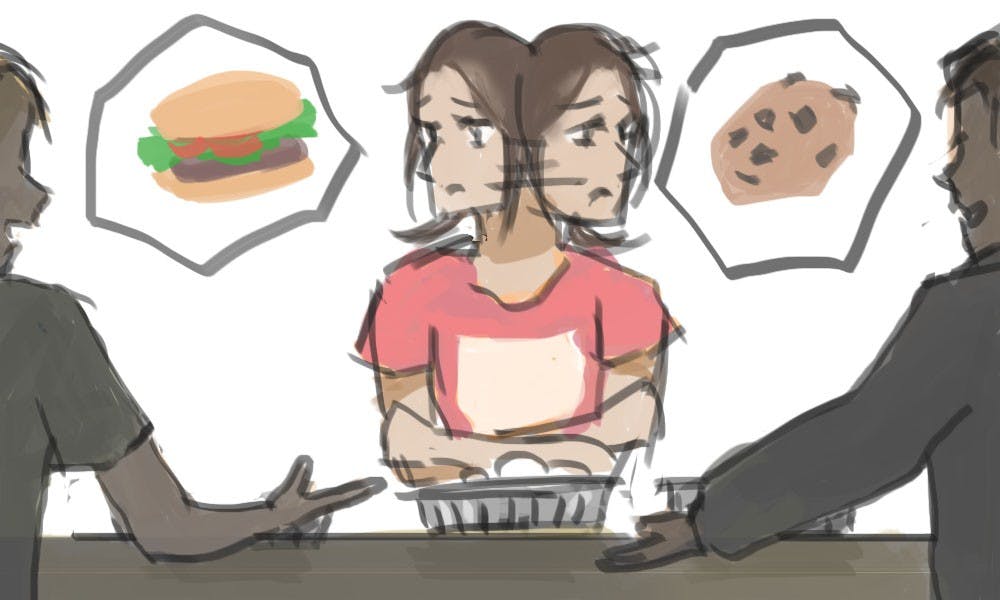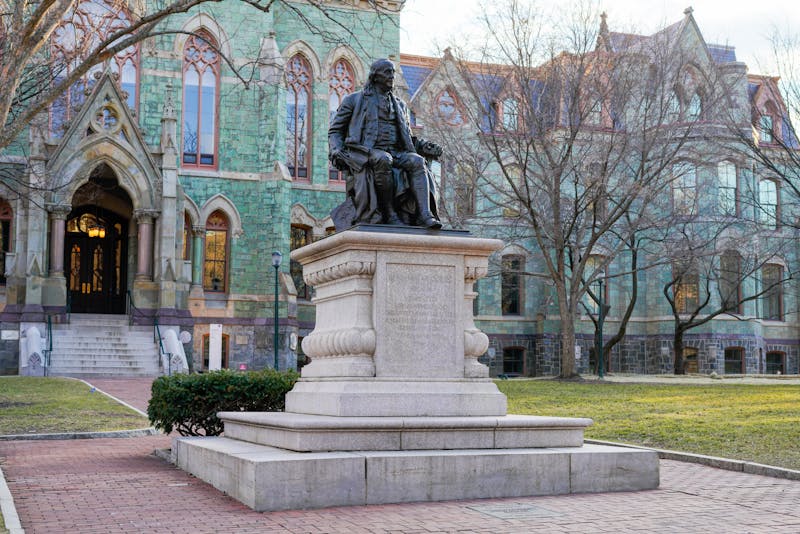
“Didn’t you eat that for lunch already?”
“You didn’t get a lot on your plate.”
“Wow, that’s a lot of food.”
“Why don’t you try something new?”
I was thirteen years old when my uncle commented on the size of cake I had placed on my plate— a piece of cake I had been eagerly awaiting the entire day. Racing through the front door I couldn’t wait to grab a slice, kick my shoes off, and enjoy myself.
While his cutting and unnecessary remark of, “are you really going to eat all of that?” may have seemed flippant and trivial to him, my thirteen-year-old hands put the fork down and were scared to lift it for a long time.
Comments like that are stronger than people realize, and hurt more than many want to admit.
Meals on a college campus are a social affair, but that doesn’t mean that conversation concerning what’s on your friend’s plate needs to be the center of attention. Free food seems to be a staple at pretty much every Penn event, and while that’s great for the college wallet, it can wreak havoc on a mind struggling with an eating disorder.
What’s more, commenting on what someone else is eating is a great way to grate against their nerves and anxieties even more. In an environment where control can be used to slice through the uncertainties of your first years living away from home, eating disorders can easily rear their ugly heads. Fortresses built from stress and busy work schedules are fertile breeding grounds, and I can attest to the difficult weeding process that accompanies them.
College campuses use free food to draw students to events, but what happens when it pushes you away instead? It can sometimes seem that every invitation to hang out involves grabbing lunch or meeting at Hill for dinner. Even a coffee run with a friend from your hall can seem like a challenge nobody really understands.
I’m here to say that I understand. It can be exceedingly difficult to navigate through a social life when your eating disorder is breathing down your neck. All of your friends want to “grab lunch and catch up,” and although you want to do the catching up part, the lunch part can be extremely daunting.
Balancing an outward appearance with your inner, and possibly concealed, struggle is exhausting, and the more other people comment on the food (or lack thereof) that appears on your plate, the more difficult it can be to want to put yourself in the position to be judged like that. The surplus of events that offer free food and social outings that revolve around dinner begin to coalesce into mountains that you don’t have the energy to climb anymore.
A larger conversation needs to happen here, and that larger conversation starts with a simple demand — stop commenting on what other people eat. Just stop.
If your friend wants to eat waffles for breakfast, lunch, and dinner, that’s their business and their decision, and it’s not your place to make them feel bad about it.
There’s a fine line between overstepping a boundary sheathed in judgement and crossing that boundary because you’re concerned for someone’s health. Straddling this line is difficult and confusing, but it begins with a conversation.
Pointing out that your friend didn’t take any of the insomnia cookies at a hall study break may seem like a lighthearted observation, but the embarrassment or shame that a quick remark like that can sear into someone isn’t worth making the comment. Being aware that someone else’s food choice is none of your concern can help lessen the exhaustive pressure people already feel when it comes to eating around others.
On the same token, it would be a shame if events you were sincerely interested in attending went unheeded because of a fear of the free food. College is a journey of enrichment, and even if you don’t snag any free pizza at a guest lecture, supplying your body with food for thought is worth attending.

SOPHIA DUROSE is a College freshman from Orlando, Florida studying English. Her email is sdurose@sas.upenn.edu
The Daily Pennsylvanian is an independent, student-run newspaper. Please consider making a donation to support the coverage that shapes the University. Your generosity ensures a future of strong journalism at Penn.
Donate






